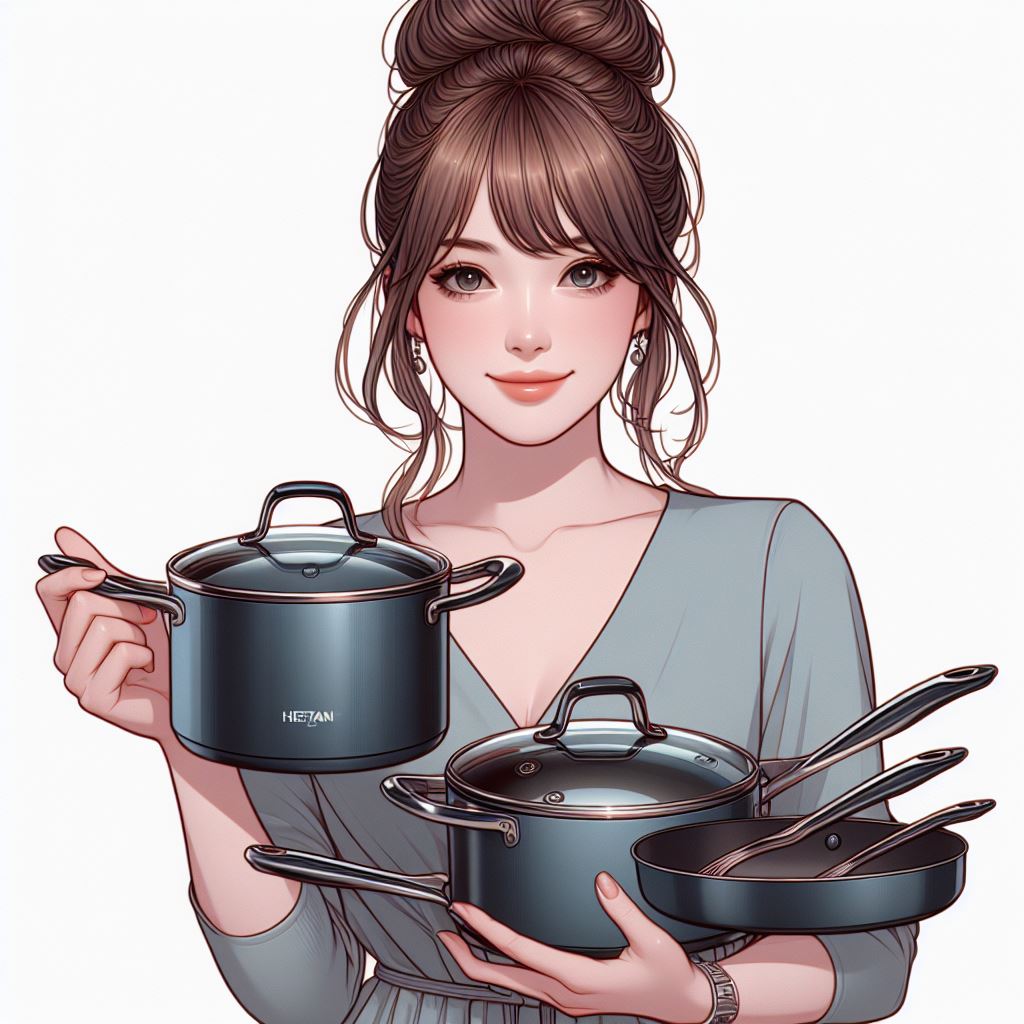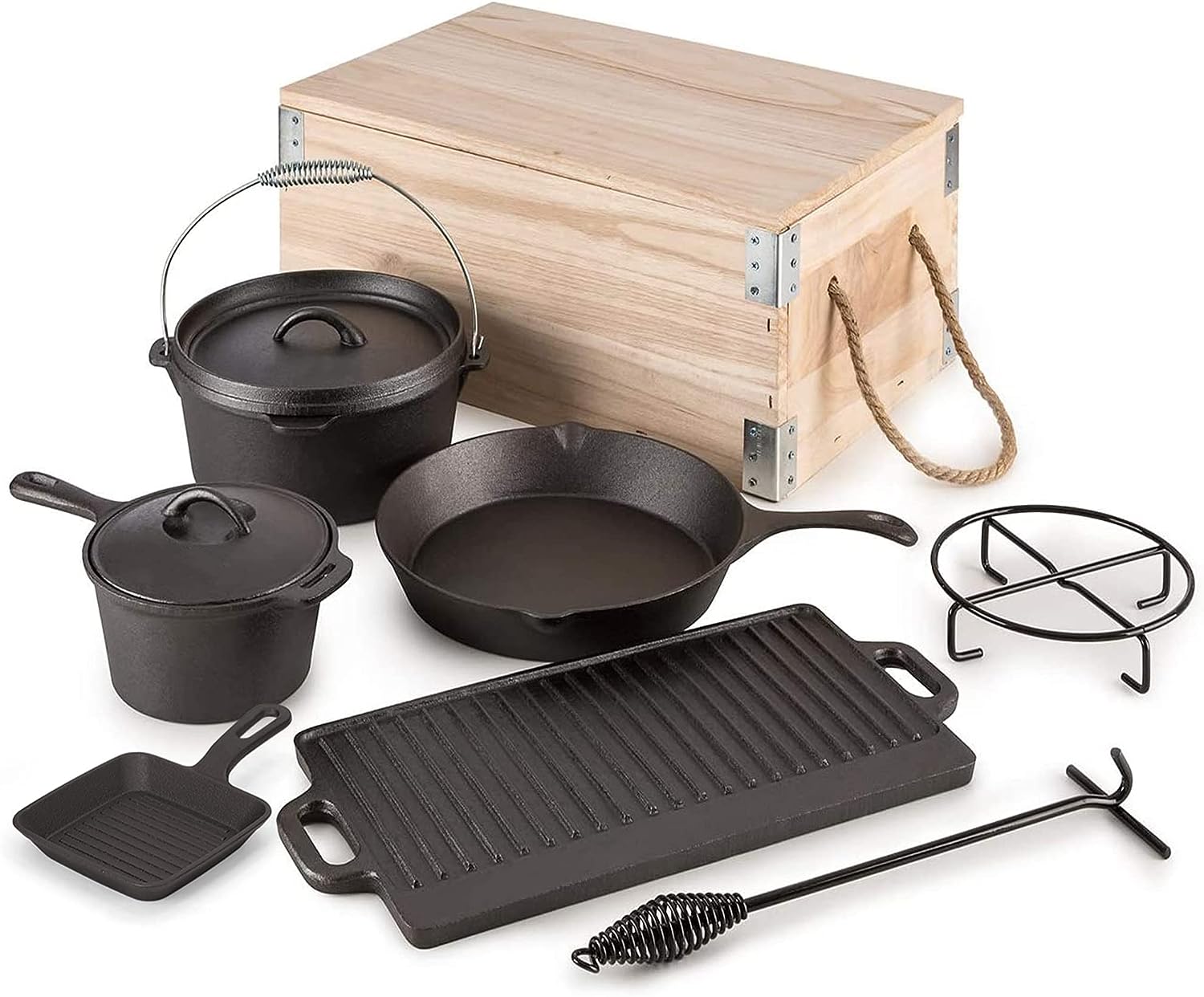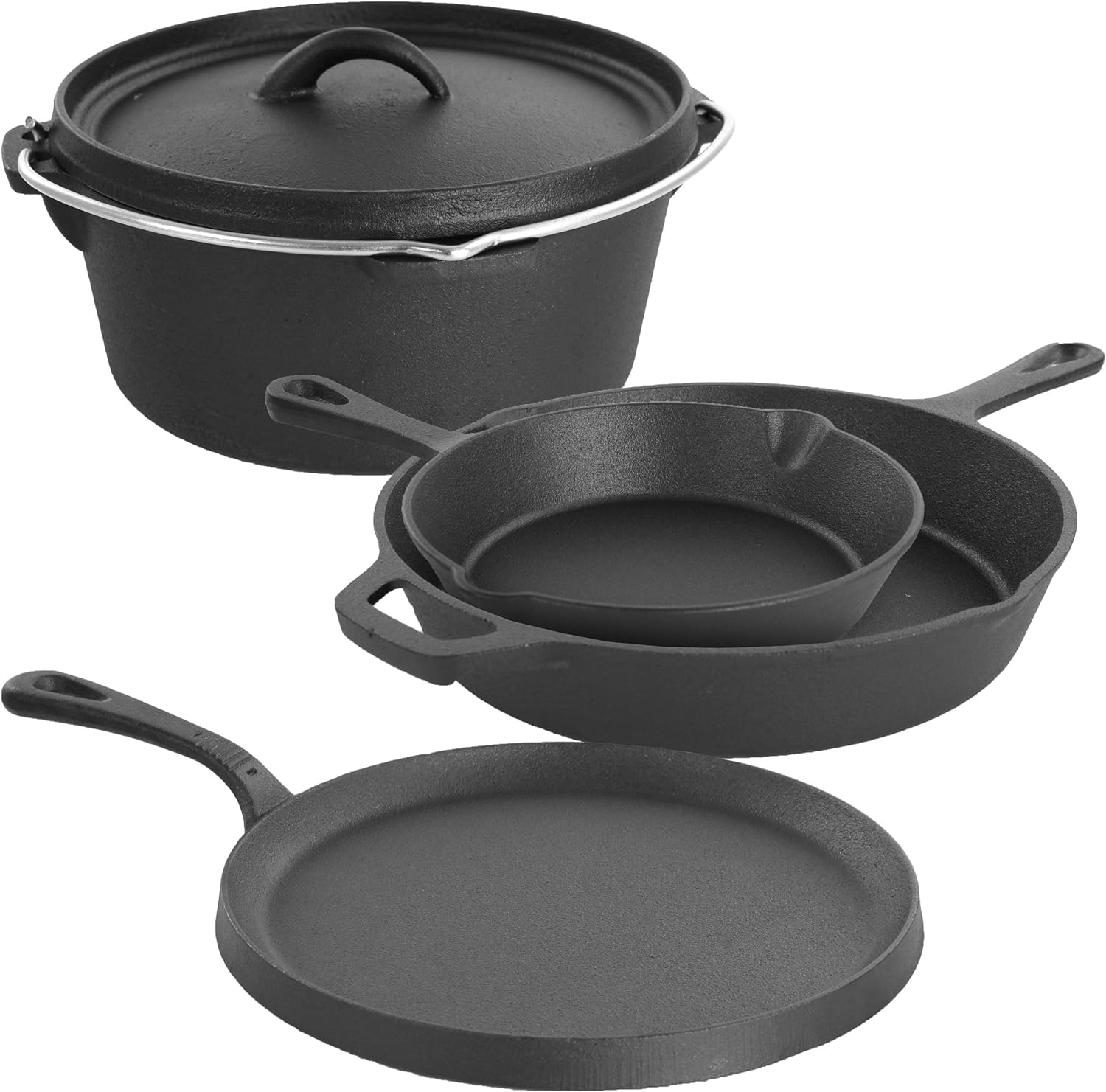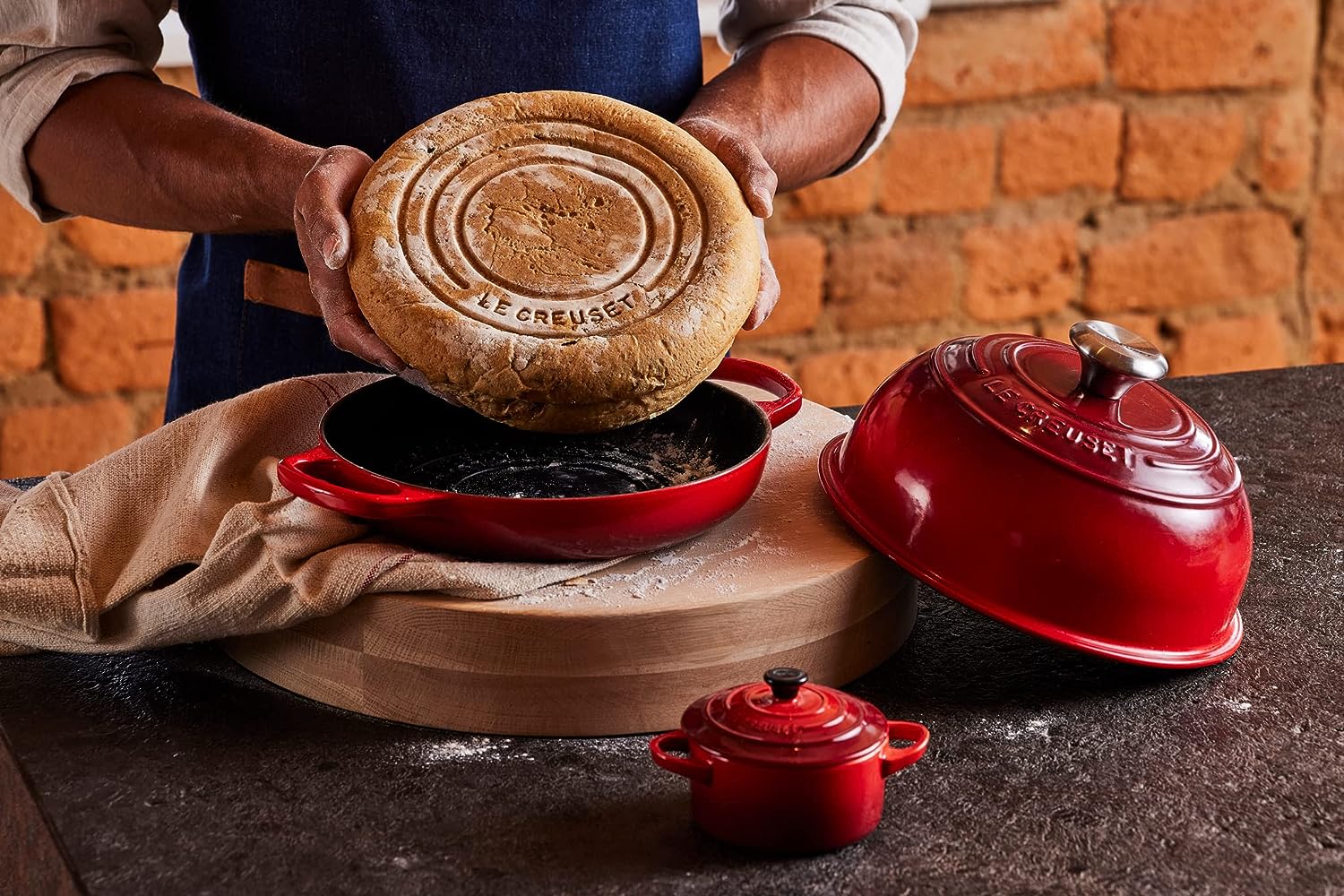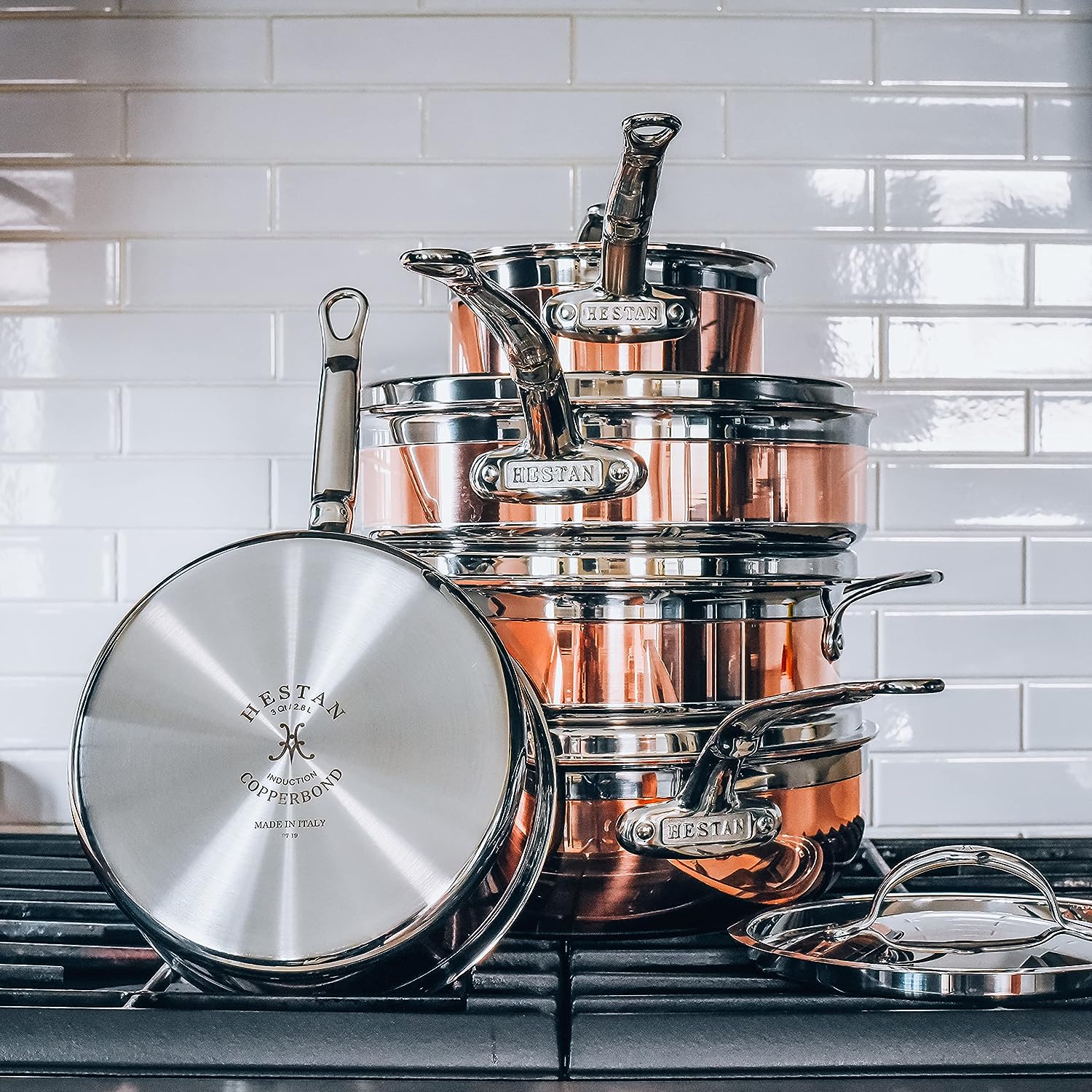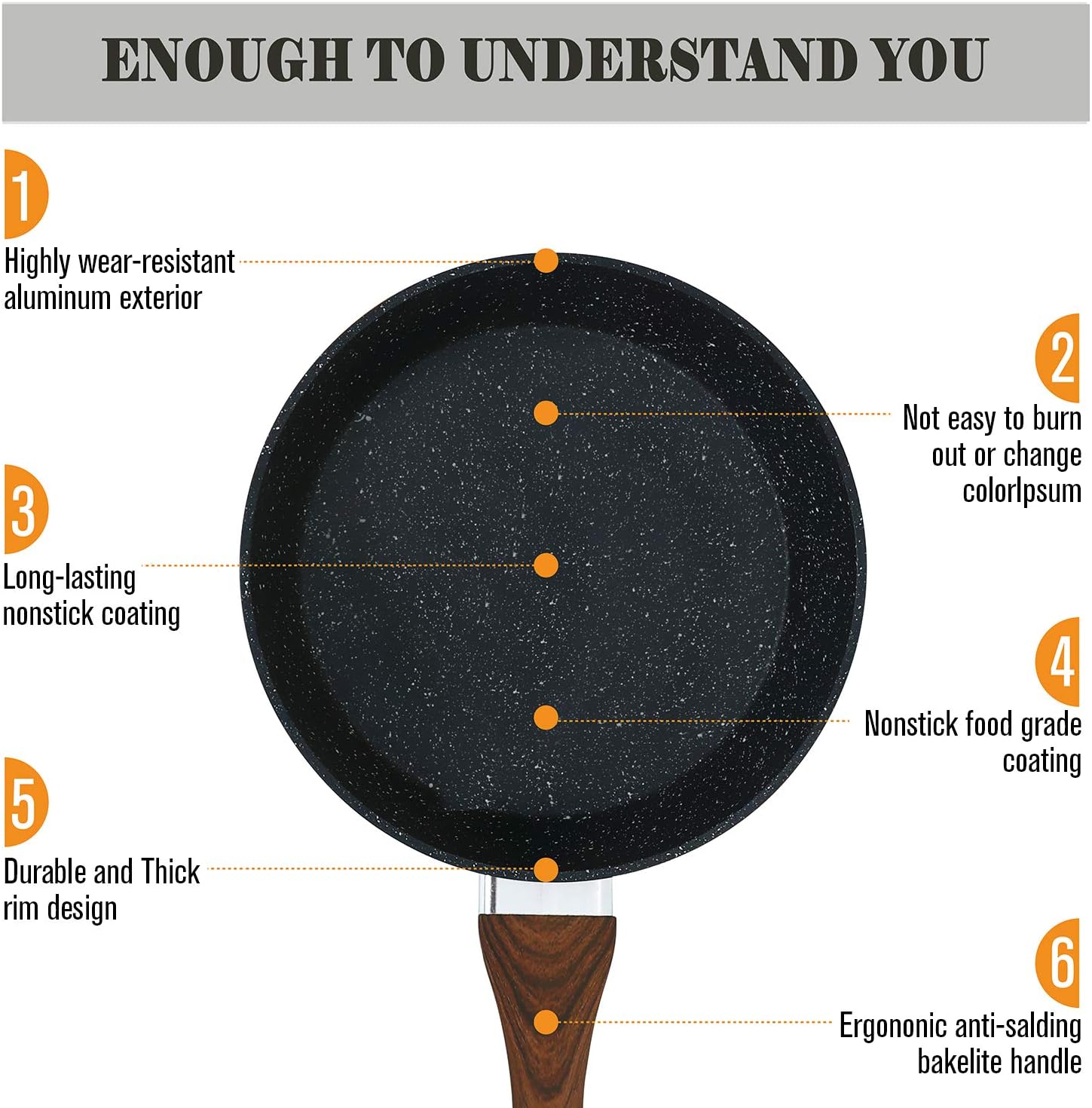Introduction:
In today’s ever-evolving culinary landscape, there’s a timeless appeal to cast iron cookware. From its exceptional heat retention to its versatility in the kitchen, cast iron has been capturing the hearts of home cooks and professional chefs alike. In this article, we’ll delve into the numerous benefits of using cast iron cookware and why it’s worth considering for your own kitchen adventures.
I. The Versatility of Cast Iron Cookware:
When it comes to versatility, cast iron cookware takes the crown. Whether you’re simmering a hearty stew on the stovetop, baking a mouthwatering cornbread in the oven, or even grilling outdoors, cast iron can handle it all. Its ability to distribute heat evenly and retain it for extended periods makes it perfect for slow cooking, searing meats to perfection, and achieving that coveted golden crust.
II. Exceptional Heat Retention:
One of the standout features of cast iron cookware is its remarkable heat retention. Once heated, cast iron holds onto that heat, ensuring consistent and even cooking throughout your culinary creations. This property not only yields delicious results but also contributes to energy efficiency, as you can reduce the heat once the desired temperature is reached and still achieve excellent cooking outcomes.
III. Durability and Longevity:
Investing in cast iron cookware is like acquiring a trusted kitchen companion for life. Cast iron is renowned for its durability, with proper care and maintenance, it can last for generations. Unlike other cookware materials that may chip or wear out over time, cast iron withstands the test of time, making it a worthwhile investment that can be passed down through the family.
IV. Natural Non-Stick Surface:
One of the joys of using cast iron cookware is the development of a natural non-stick surface. Through the process of seasoning, a layer of polymerized oil forms on the surface, creating a slick and naturally non-stick cooking surface. This means you can enjoy easy food release, require minimal oil for cooking, and say goodbye to the frustration of stuck-on food.
V. Health Benefits:
Cooking with cast iron not only enhances your culinary creations but also provides potential health benefits. When cooking acidic or high-moisture foods in cast iron, a small amount of iron can be transferred to the food, contributing to increased iron intake. However, it’s essential to note that the actual amount is relatively small and may not be significant for everyone. Cast iron is also free from the potentially harmful chemicals found in some non-stick coatings, offering peace of mind while preparing your favorite meals.
VI. Versatile Cooking and Recipe Options:
With cast iron cookware, the possibilities are endless. From frying up crispy chicken to baking a luscious fruit cobbler, and even braising succulent meats, cast iron can handle it all. Its ability to withstand high temperatures and transition seamlessly from stovetop to oven opens up a world of culinary creativity. Consider whipping up classics like skillet cornbread, sizzling fajitas, or indulgent deep-dish pizzas to explore the full potential of cast iron cooking.
VII. Easy Maintenance and Cleaning:
Contrary to popular belief, cast iron cookware is relatively easy to maintain. Avoid using harsh detergents or abrasive cleaning agents that can strip away the seasoned surface. Instead, opt for gentle cleaning methods such as hot water and a soft brush or sponge. Proper seasoning and drying after each use are crucial to prevent rust and maintain the non-stick surface. With a little care, your cast iron cookware will reward you with years of reliable performance.
VIII. Timeless Appeal and Heritage:
Cast iron cookware carries with it a sense of nostalgia and heritage. Passed down from generation to generation, these cherished pieces hold stories and memories. Using heirloom cast iron not only connects us to our culinary roots but also preserves a piece of history. There’s something truly special about cooking with a skillet that has been seasoned and cherished by those who came before us.
IX. Eco-Friendly and Sustainable:
In a world where sustainability is paramount, cast iron cookware shines brightly. Its durability and long lifespan reduce the need for disposable cookware, promoting a more eco-friendly kitchen. Instead of constantly replacing worn-out pans, cast iron offers a sustainable solution that can be relied upon for years to come. As you savor your meals cooked in cast iron, you’re also making a small but meaningful contribution to a greener planet.
X. Conclusion:
Cast iron cookware embodies a multitude of benefits that make it a worthwhile addition to any kitchen. Its versatility, exceptional heat retention, durability, natural non-stick surface, health benefits, and easy maintenance combine to create a kitchen staple that stands the test of time. Embrace the joy of cooking with cast iron, explore its limitless possibilities, and savor the flavors of a bygone era.
FAQ:
Q: Can I use cast iron cookware on all stovetop types?
A: Yes, cast iron cookware works well on all stovetop types, including gas, electric, and induction.
Q: How do I season my cast iron cookware?
A: To season cast iron, coat the surface with a thin layer of oil and bake it in the oven at a specific temperature for a designated time. This process helps create and maintain the non-stick surface.
Q: Can I use soap to clean my cast iron cookware?
A: While some mild soaps can be used sparingly, it’s generally recommended to avoid using soap when cleaning cast iron. Hot water and gentle scrubbing are usually sufficient.
Q: Can I cook acidic foods in cast iron?
A: Yes, you can cook acidic foods in cast iron. However, it’s advisable to avoid long cooking times or prolonged storage of acidic foods in cast iron, as it may affect the seasoning or result in a metallic taste.
Q: Can I use metal utensils with cast iron cookware?
A: While cast iron is highly durable, it’s best to use wooden, silicone, or other non-metal utensils to preserve the seasoned surface and prevent scratching.



